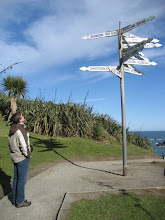Hopefully you're beginning to see how the 8th Habit--Find Your Voice and Inspire Others to Find Theirs--is another way of saying, "Use the empowering knowledge worker, whole-person model. Apply the 7 Habits (personal greatness), the 4 Roles of Leadership (leadership greatness) and the 6 principles or drivers to execution (organizational greatness) to that model."--Stephen R. Covey, The 8th Habit: From Effectiveness to Greatness
"Why is the eighth habit longer than the first seven combined?" is a question I heard more than once while reading The 8th Habit. As the quote shows, The 8th Habit applies the seven habits to personal and interpersonal life in "Knowledge Worker Age," and then extends their paradigms into leadership and organizational greatness. Along the way Covey's writing references a confusing number of lists and research.
The 7 Habits of Highly Effective People proceeds from "private victory" to "public victory." Private victory is essentially making and keeping promises, implemented in the first three habits. Public victory is essentially involving others in the problem and working out the solution together, implemented in the next three habits. Habit 7 (Sharpen the Saw) "embodies all the other habits. It is the habit of continuous improvement...."
To elaborate on the habit of self-improvement for a healthy balanced life (an aim I mentioned in a previous book review), Covey identifies four dimensions: physical, mental, social/emotional, and spiritual. He identifies example activities for each dimension that build a person's productive capacity: exercise, nutrition, and stress management (for body); reading, visualizing, planning, and writing (for mind); service, empathy, synergy, and developing intrinsic security (for heart); and value clarification and commitment, and study and meditation (for spirit).
In Covey's First Things First these dimensions find expression in the subtitle: "To Live, To Love, To Learn, To Leave a Legacy." In The 8th Habit these four dimensions are the "whole person paradigm". The process of "finding your voice" involves answering questions along these dimensions: What drives your economic engine? What can you be the best in the world at? What are you deeply passionate about? What does your conscience counsel?
The entire eighth habit is "find your voice and inspire others to find theirs." Consequently the book proceeds from personal greatness to leadership greatness. From mental vision, physical (or economic) discipline, emotional passion, and spiritual conscience arise Covey's "4 Roles of Leadership": pathfinding, aligning, empowering, and modeling. These roles lead to these leadership activities:
- Jointly determine the course.
- Set up and manage systems to stay on course.
- Focus talents on results, not methods, then get out of people's way and give help as requested.
- Set a good example.
As its length suggests, there is more material in The 8th Habit than can be easily evaluated and applied after one reading. In fact, Covey suggests it as a yearlong personal growth and development program. Time will tell whether the eighth habit is as memorable as the seven habits were.

No comments:
Post a Comment